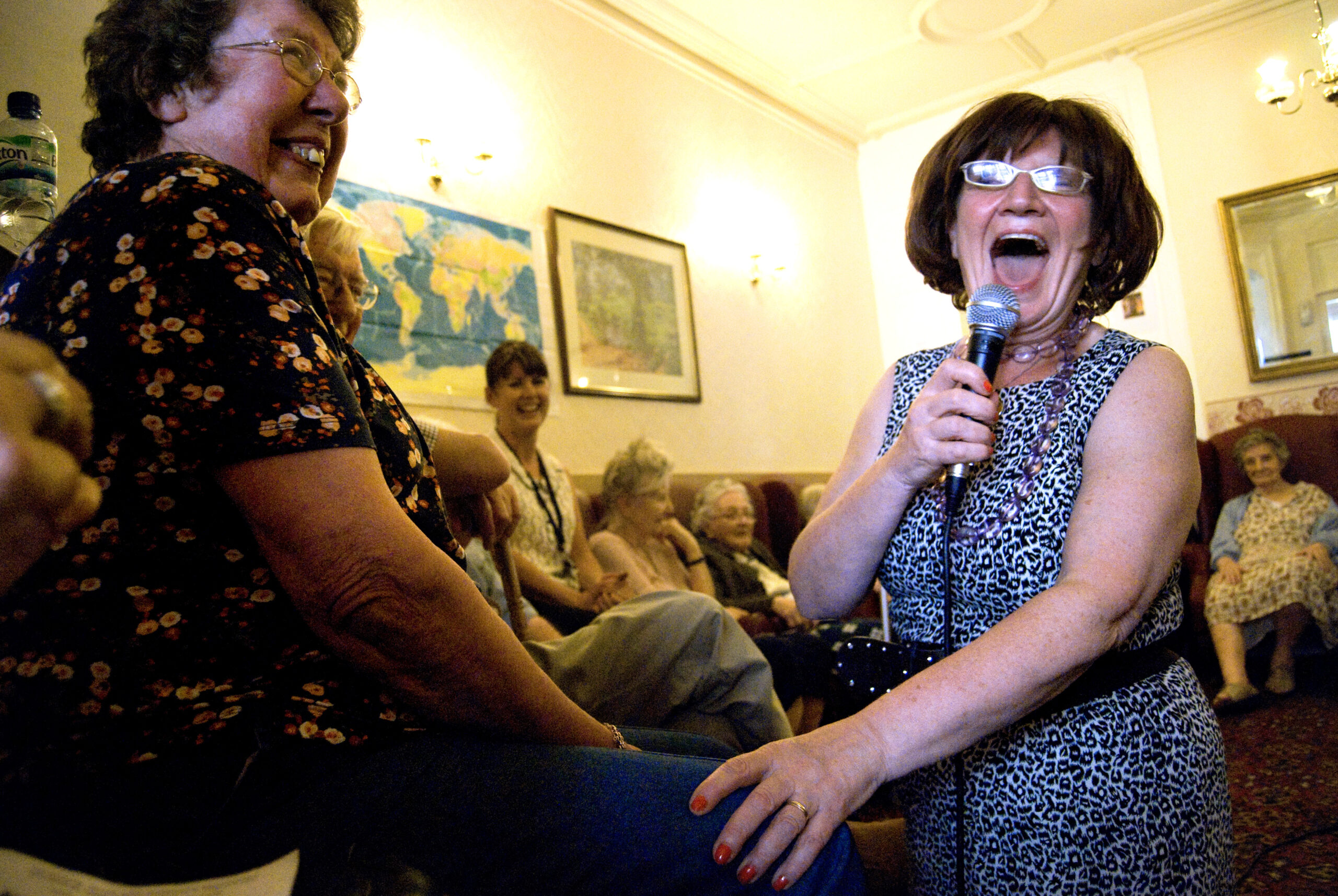
Mrs Barbara Nice in a care home
Laughter is the best medicine
Women & Theatre has delivered comedy courses in residential homes to people with varying degrees of dementia. Sabra Khan asks one of the comedians to reflect on the experience.
Women & Theatre is a Birmingham-based company with particular expertise in comedy (artistic director and founder Janice Connolly is stand-up comedian Mrs Barbara Nice). The company has harnassed this strength to developcommunity comedy clubs over the past few years, using comedy as a vehicle to bring people together and increase wellbeing. We have delivered courses with diverse participants including young people, disabled adults, women-only and men-only groups, and Christian and Muslim young people. In 2011 the concept won the Young Foundation/NHS Birmingham and Solihull Cluster ‘Big ideas bonanza’, a prize rewarding innovative ideas for improving community health.
In 2012 we delivered our largest comedy course project in residential homes, funded by a number of foundations and trusts. This funding enabled us to bring on board other professional comedians to develop our skills in delivering this strand of work.
Steve Day, one of our assistant comedians, reflects on his experience of supporting the delivery of two of these courses: “Participating in comedy workshops for people in care homes has been the most challenging and rewarding thing I have ever done in my career. Challenging in many respects, especially coping with the different levels of dementia, in seeing the person rather than the age, and creating a comedy show from the jumble of ideas and talents of the group, but massively rewarding in seeing that happen.
“It seems to me vital that a comedy show is our aim rather than a general entertainment revue. It is the discipline to make something funny which is necessary to achieve anything coherent. If you start with the idea of comedy you might get an entertainment show, but if you start unfocused, you will get a mess.
“The other challenge is not to be overwhelmed by what faces you on the first day. It is easy to see older people as decrepit and useless, but if you throw yourself into it by the end you forget people are old at all. Dementia also need not be an obstacle. With people for whom memories are not coherent, it is important to always stay in the moment. Often there is enough to work with if you keep it simple and immediate, and dementia sufferers can contribute, be funny without the joke being on them, and feel joy in performing.
“It can be frustrating coming back the week after a workshop that has gone well only for most of the participants to have no recollection of who you are − but this is something you get used to. In addition, some of our group members, while not suffering from dementia as such, have been sleepwalking a little in their lives, and writing and performing a show has been a way of switching them on again. It can be a song, scarcely remembered at first but with practice coming back to them, that does the trick, a joke perhaps, or funny remembrance. It is less important what it is, but that it happens.
“How you measure the beneficial aspects of the workshops I have no idea. We have tried to gauge the satisfaction levels by asking if they enjoyed it, to rate the session from one to five and so on, but there is no easy way to measure the feeling for someone of performing a story, joke or song that would have been impossible for them a matter of weeks before, or for the joy that brings to a relative or loved one.
“It is hard work, but I have seen the positive impact of taking part in the lives of people where it is difficult to identify what otherwise might help them. Laughter is the best medicine and it is certainly cheaper than pharmaceutical alternatives.”
Sabra Khan is General Manager of Women & Theatre.
Join the Discussion
You must be logged in to post a comment.